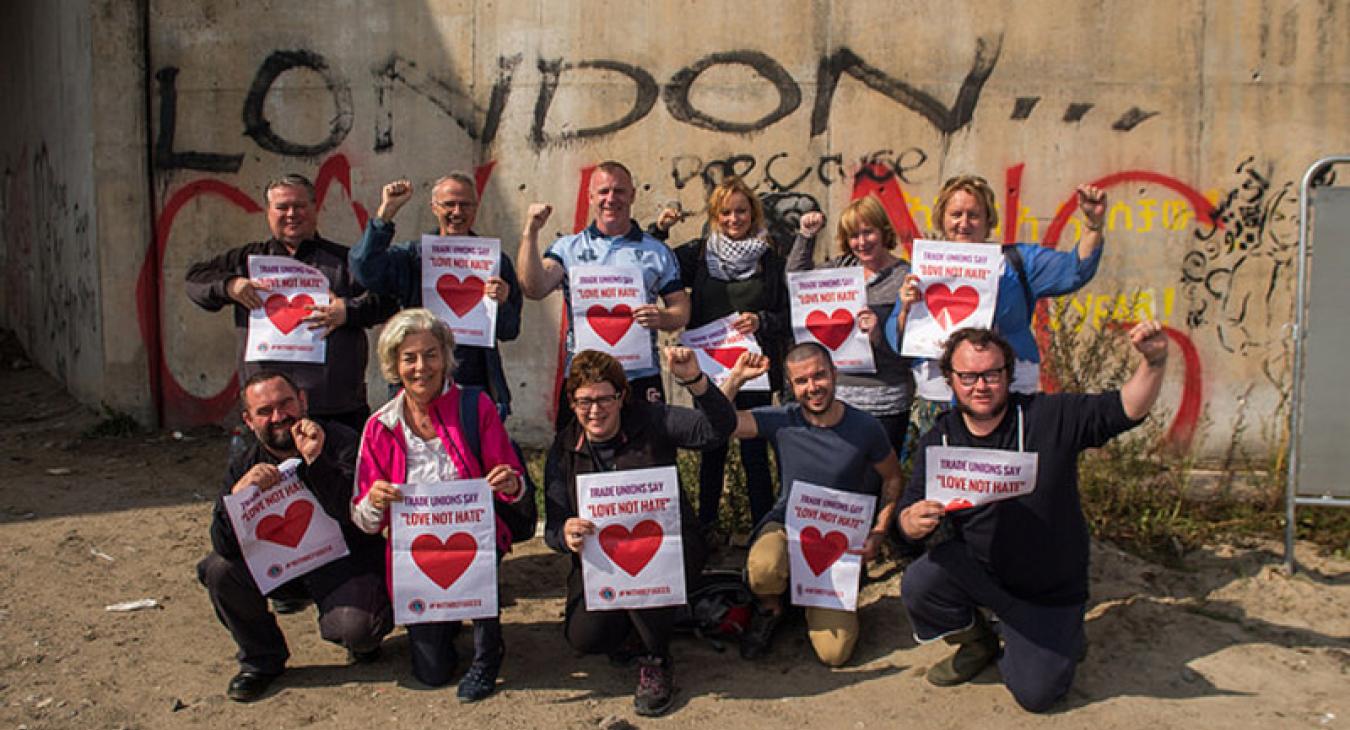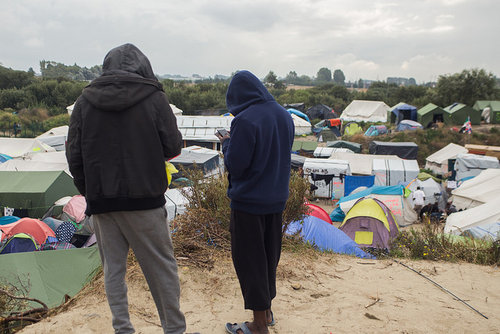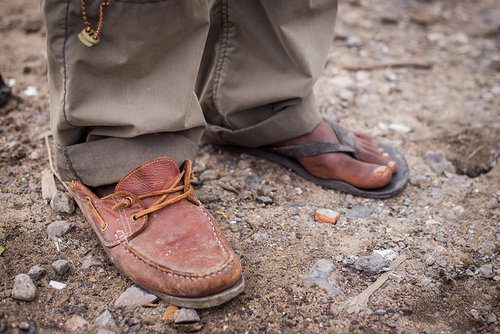
Ashling Seely and Yvonne O'Callaghan of the Congress Global Solidarity Committee report on a visit to refugee camps in Calais and Dunkirk, against the backdrop of a disappointing outcome from the recent UN Summit on Refugees & Migrants in New York
The New York Declaration falls far short of what is needed to tackle the global refugee crisis. It an affront to the millions of refugees making unsafe journeys, to those enduring squalid living conditions and the 33,000 people forced to flee their homes daily.
It epitomises the critical failure of all official and governmental efforts to deal with this crisis.
In this context, the onus is on each one of us to raise our voices and make clear that we demand better for people forced to flee their homes.
Our delegation visited the refugee camps in Calais (known as the 'Calais Jungle') and Dunkirk on the 16-18 September.
The delegation got to meet some wonderful volunteers working in the camps, people who took the time to discuss the incredibly important work they do and recount the stories of camp residents: stories of torture and brutalisation, illness and injury, determination and resilience on the part of those who persevere with dignity and strength.
On entering the camps, we experienced new, arbitrary security checks by the CRS (French National Police), in which passports had to be produced and details were taken.

In the midst of torrential rain, we saw residents of the Calais camp scramble to save their few belongings from the downpour and prevent their shelters (basic camping tents) from being washed away by the rivers of water cascading through the camp.
The camp itself is built on an old commercial dump. The NGO L'Auberge de Migrants - http://www.laubergedesmigrants.fr/ - completed a census in the recent weeks and the camp population is now in excess of 10,000, with approximately 50 new arrivals daily.
Volunteers at the L'Auberge des Migrants warehouse told the delegation how donations have dropped significantly because of the negative media stories put out about the Calais camp, including misinformation earlier this year about its destruction, but more importantly the use and abuse of the migration issue in the Brexit referendum.
The delegation heard of the story of a 14-year-old Afghan boy named Rahim, who was killed the night before we arrived in a hit and run. As Rahim was an unaccompanied minor his teenage friends had to identify his body. He had been trying to reach his uncle and brother in London.
The French police will not be investigating his death, nor do they investigate reports of children that go missing from the camp.
The camp residents were aware of the threat by the French government to destroy the camp within a matter of weeks https://www.rt.com/news/358050-france-destroy-calais-jungle/ and said they were not being offered any concrete alternative.
We heard countless stories of police brutality, with groups of police up to 20 strong entering the camp and beating up residents, along with ongoing teargassing of the camp at night.

We also heard many stories of families torn apart, of people losing everything they owned over and over again, of the dangers facing women and unaccompanied minors and they systemic discrimination they faced.
But there high points too. One evening the delegation attended a live musical performance by two Welsh musicians, in a makeshift restaurant. They were joined on stag by a rapper from Sudan, a rapper from London and a beatbox performer from Libya. It was an unforgettable evening of community and togetherness, with people from across Africa, the Middle East (and Europe) dancing and singing along.
The camp residents tend to fall into two categories. There are the young able-bodied men who continuously try to make the dangerous crossing to the UK, frequently attempting to jump on moving trucks at night.
Then there are the many older men, the people with disabilities and women who feel they are stuck here for an unknown length of time and face a very uncertain future.
But in the face of these huge odds and difficulties, the delegation also witnessed some remarkable examples of humanity and community solidarity.
The resilience, resourcefulness and collectivism displayed by residents and volunteers in the camps was little short of incredible.
Above all, we were humbled by the hospitality and warmth that met us throughout the visit, from people who had lost virtually everything.
They are resilient people but hope is diminishing.
The future is uncertain for every one of the more than 10,000 people in these camps, many of then under 30, a lost generation searching for no more than a safe place to live and the ability to raise families with dignity and respect.
Pictures of the visit were taken by Graham Seely of Gansee Films and more are available here. A short film on the visit will be available in the coming weeks.
